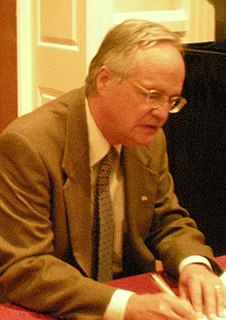A Quote by James Gustave Speth
Poverty, in the end, is a state of dispossession and deprivation in which people are not only deprived of their income, but also of opportunity, empowerment and, most important, dignity.
Quote Topics
Related Quotes
There's no way in which you can ever win a war against terror. As long as there are conditions in many parts of the world that make people desperate: poverty, disease, ignorance, etc. I hope that we will discover soon, that we can survive, only together. We can prosper only together. And I think people are beginning to realize this, that you can't have pockets of prosperity in one part of the world and huge deserts of poverty and deprivation and think you can have a stable, secure world.
[Libertarians] don't denounce what the state does, they just object to who's doing it. This is why the people most victimized by the state display the least interest in libertarianism. Those on the receiving end of coercion don't quibble over their coercers' credentials. If you can't pay or don't want to, you don't much care if your deprivation is called larceny or taxation or restitution or rent. If you like to control your own time, you distinguish employment from enslavement only in degree and duration.
Many people believe in eliminating gaps and eliminating poverty. They don't realize that in some sense those two things are antithetical. If you were to double everyone's income, or if everyone's income were doubled naturally over the course of time, then you would reduce poverty significantly but you would have also increased the gap.




































